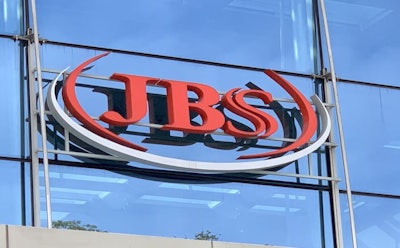
On March 22, Brazil-based food company JBS released its fourth quarter of 2021 financial results in a conference call with CEO Gilberto Tomazoni and members of the press. The two main topics of the call were the company’s sustainability efforts and production expansion.
Sustainability
The company has invested over R$7 billion (USD 1.4 billion) into global sustainability projects in 2021, including R$653 million (USD 135.2 million) to new biodiesel, organomineral fertilizer and collagen and peptide plants.
“In 2021, we established one of the most important commitments in our history: to be net zero by 2040,” according to JBS. And the company has initiated multiple programs to achieve this:
- A partnership with DSM to reduce bovine methane emissions through specialized food additives
- The construction of a solar energy plant in Texas to supply the Pilgrim's operations in the United States
- The adoption of solar energy at all Swift stores by 2025
The company has embarked on many other conservation projects including the installation of 15 green offices that will “provide livestock farmers with environmental, legal and technical consultancy,” according to JBS.
JBS also established one of the world’s largest biodiversity corridors which is located along the Araguaia River in central Brazil and is 3,000 km and 13 million hectares.
Expansion
As part of the company’s expansion efforts, it has acquired multiple brands over the past year, including Vivera, Kerry's Retail Business Unit, Rivalea, Huon, Kings Group, Sunny Valley and BioTech. These added brands expand the company’s portfolio, especially in the realm of alternative or plant-based proteins.
JBS also saw to the “expansion and modernization of 15 Seara plants,” one of the company’s most recognizable brands, according to the financial results.
And the company also acquired the fertilizer brand Campo Forte which makes fertilizer out of organic waste.
By the end of 2021, JBS’s net revenue was R$350.7 billion (USD 65 billion), adjusted EBITDA was R$45.7 billion (USD 8.5 billion) and net income was R$20.5 billion (USD 3.8 billion).

















